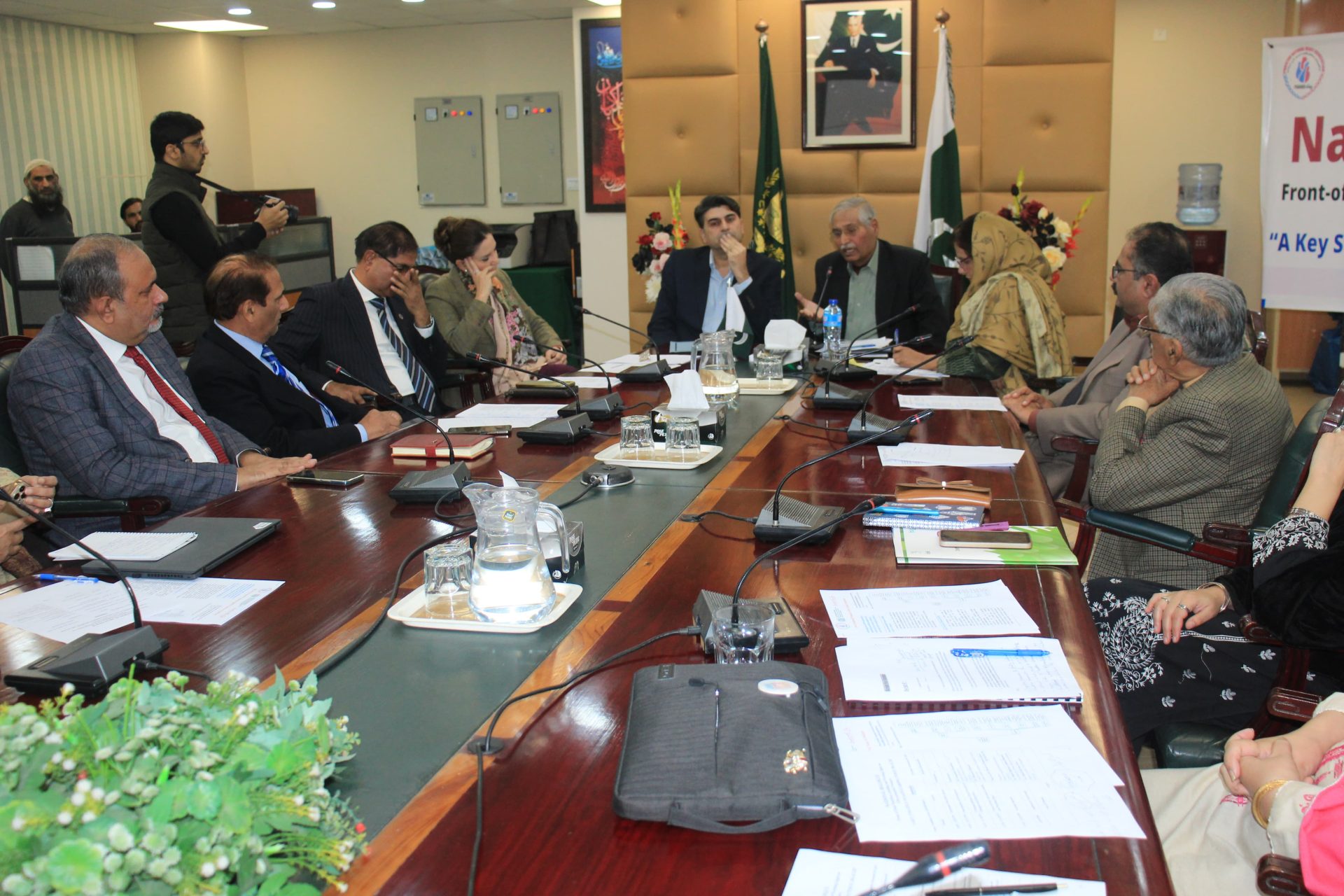 05 December 2024, Islamabad: Pakistan is witnessing a significant un epidemiological shift, with non-communicable diseases (NCDs) now accounting for over 60% of deaths annually, according to the World Health Organization (WHO). This alarming trend was the focal point of a national dialogue organized by the Pakistan National Heart Association (PANAH) in collaboration with the Ministry of National Health Services, Regulations, and Coordination. The event, held at the Ministry’s office, was chaired by Dr. Malik Mukhtar Ahmed Bharath, Advisor to the Prime Minister on Health, and attended by health professionals, ministry officials, civil society organizations, and media representatives.
05 December 2024, Islamabad: Pakistan is witnessing a significant un epidemiological shift, with non-communicable diseases (NCDs) now accounting for over 60% of deaths annually, according to the World Health Organization (WHO). This alarming trend was the focal point of a national dialogue organized by the Pakistan National Heart Association (PANAH) in collaboration with the Ministry of National Health Services, Regulations, and Coordination. The event, held at the Ministry’s office, was chaired by Dr. Malik Mukhtar Ahmed Bharath, Advisor to the Prime Minister on Health, and attended by health professionals, ministry officials, civil society organizations, and media representatives.
The dialogue underscored the dire health crisis Pakistan faces, with diabetes, cardiovascular disease (CVD), obesity and other NCDs at critical levels. Pakistan now ranks first globally in diabetes prevalence, with the number of adults living with diabetes rising from 6.3 million in 2011 to an estimated 36 million in 2024, alongside one million pre-diabetics. Diabetes claims more than 1,100 lives daily in the country. Cardiovascular disease accounts for 55% of NCD-related deaths, translating to approximately 450,000 fatalities annually. Obesity is also on the rise, with 40% of the population classified as overweight or obese, and the WHO estimating Pakistan’s adult obesity rate at 28%.
Speaking at the event, Dr. Malik Mukhtar Ahmed Bharath emphasized the urgent need for preventive measures to curb the escalating NCD burden. “Non-communicable diseases are rising at an alarming rate. Dietary risk factors are a key driver of this crisis, which can be mitigated by implementing Front-of-Pack Warning Labels (FOPWL) on ultra-processed products,” he stated. All ministries, NGOs and segments of society shall come together to tackle this public health issue.
Major General (R) Masud Ur Rehman Kiani, President of PANAH, provided a detailed briefing on the modifiable risk factors for NCDs, particularly the harmful effects of ultra-processed foods. “The government must take decisive policy actions to reduce the consumption of unhealthy foods. Enacting FOPWL will empower consumers to make healthier choices,” he asserted. He said that we are thankful to ministery of Health that they have always stood with PANAH. We have worked closely with the ministry of health in increasing taxes on sugary drinks and obtained policy victories. Today we request ministry of health to take lead role on enactment of mandatory front of package warning labels on Ultra-processed products and submit proposal to ministery of science and technology. PANAH will work with ministry in development of the proposal.
Mr. Munawar Hussain, Country Coordinator for the Global Health Advocacy Incubator (GHAI), highlighted the economic and health costs of ultra-processed products. He explained that FOPWL is a threshold-based labeling system that alerts consumers to harmful ingredients like sugars, saturated fats, trans fats, sodium, and non-sugar sweeteners. “Globally, governments have adopted Front-of-Pack Labeling based on robust Nutrient Profile Models (NPMs) as an evidence-based strategy to combat dietary risks and NCDs,” he noted, citing WHO recommendations for FOPWL as part of a comprehensive policy framework.
Sana Ullah Ghumman, General Secretary of PANAH, stressed the need for government commitment to public health over corporate interests. “The food and beverage industry misleads policymakers about the health risks of their products, prioritizing profits over public well-being. Strong government action, including the enactment of FOPWL, is essential to empower consumers and reduce the NCD burden,” he remarked.
The dialogue concluded with a unanimous call for immediate implementation of Front-of-Pack Warning Labels and other policy measures to safeguard public health and reduce the prevalence of NCDs in Pakistan.
Sub Editor: Ghufran